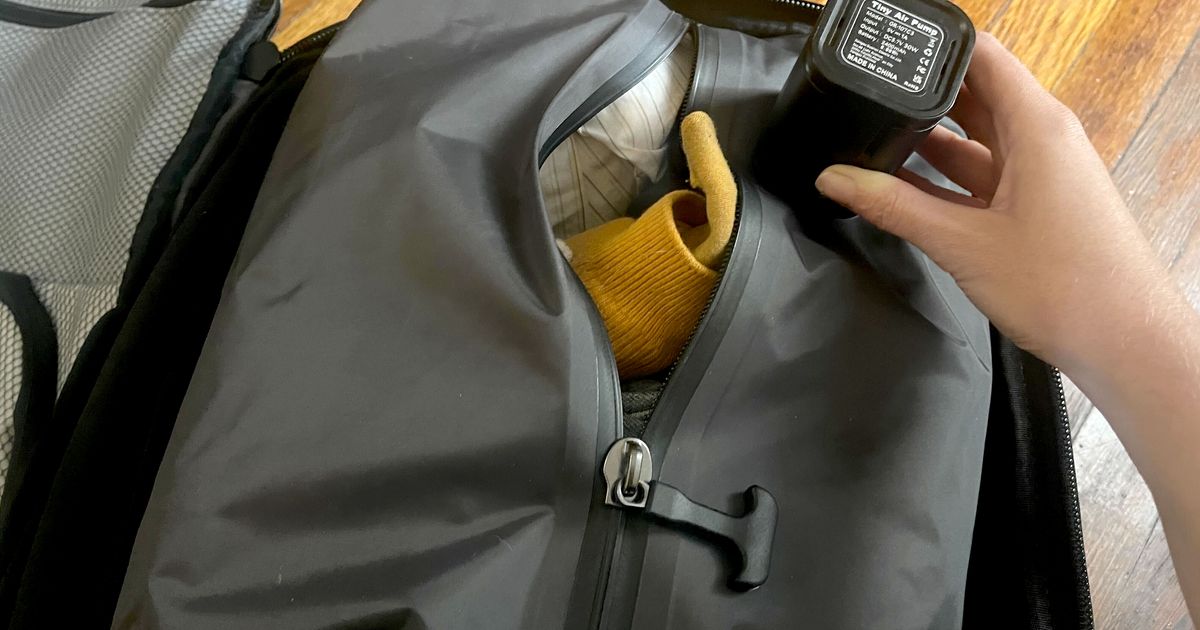Entertainment
‘The Acolyte’ star Charlie Barnett reacts to Yord’s big moment
:max_bytes(150000):strip_icc()/acolyte-3-062424-a97c8186fd85478b804ffc9b0cee49ba.jpg)
Warning: This article contains spoilers about Star Wars: The Acolyte episode 5.
It wasn’t supposed to happen this way. After an unmasked Sith Lord brutally killed young padawan Jecki Lon (Dafne Keen) on the fifth episode of The Acolyte and was revealed to be none other than misfit apothecary Qimir (Manny Jacinto), a hero arrived to save the day. That hero was none other than Yord Fandor (Charlie Barnett), who soared into frame and attacked the Stranger with his own creepy helmet.
But just moments later, the tables turned, and the Stranger snapped Yord’s neck, adding yet another victim onto the season’s pile of bodies. It was a stunning display of violence and a shocking end to the Jedi Knight’s life. But it turns out that rehearsals for the death scene were far less traumatizing… and even somewhat soothing. That’s according to Barnett, who spoke to Entertainment Weekly as part of our new cover story on the game-changing fifth installment of the Star Wars series. He also broke down a lot of the character’s backstory that helps explain those final moments. So in the words of Barnett himself, let’s Yord it up y’all!
Lucasfilm
ENTERTAINMENT WEEKLY: How did creator Leslye Headland break the news to you that Yord would not be long for this galaxy?
CHARLIE BARNETT: I walked in the day that we were filming it… No, I’m kidding! Leslye was very up front from the very get-go. No one ever wants to be cut out of a show, but when you know that going into it, performance-wise, it gave me a bookend and it gave me a route to plan out and play a little more of the rollercoaster role, showing the ups and downs and showing how he ends up getting into this position. When you’re playing a character that you know is going to die, it’s a little more fun. If it’s a surprise to you and your job is gone next week, it sucks, but when you know what you’re walking into, you get to have a little more control over it. And I tried to find the lemonade through the lemons.
Did you and Dafne bond over your untimely demises, knowing that you were also going to go out at the same time?
They asked me if I wanted to go watch Dafne’s death, and I was like, “No, are you f—ing kidding me? I love her. I don’t want to see her die four times over. It’s just visceral and f—ed up and sad. No, I don’t need all that. I’m going to save that for sitting on my couch in my own comfort of tissue boxes and tears.”
Lucasfilm Ltd
What was it like filming your big death scene?
Let’s just put it out there: Manny, beyond being an extremely handsome gentleman, is one of the kindest people ever. And in rehearsing it, we’ve got to move slow. So throughout all this time, I’m just being held by Manny, and he is just cradling my head and being like, “Oh, Charlie, does that hurt when I crack your neck that way?” And I’m like, “No, man. You’re killing me. It’s totally fine. You can crack my neck however you’re f—ing going to crack it. I’m going to be dead.” But it was actually really comforting and peaceful. And he’s so sweet and so kind that it was like I was gently being killed until we were like, “Okay, let’s speed this baby up.” And then I am dead on the floor. It was a nice death. It was luxurious.
You have two big fight scenes with Manny. I know you guys work on it solo, then you come together, so tell me about doing that dance with him.
Manny’s an incredible dancer. Manny comes from a background of breakdancing and hip hop. I know a lot of forms of dance — way less that Manny, but I did ballet, I did jazz, I did tap, I did more of the musical theater kind of route. I came in there thinking how much this knowledge of dance is going to really help apply to learning fight choreography, but it’s a different kind of movement. It’s a different kind of attack.
I thought I would be quick to pick up pieces, but you have to leverage the fear of hitting or harming someone. There’s that fear of: There’s another person on the end of this, and we are doing a piece together that’s a tango in which I can’t touch them. It’s all these weird little very minute protections that you then have to think of in your mind. I don’t want to hit the number two on our call sheet because I might literally be fired. You know what I mean? As I’m wielding this pipe around that’s supposed to be a burning lightsaber! You have to learn then how to act dance and be a safety monitor all at the same time. But it was so much fun. I wanted to have way more of it. I honestly was upset that I couldn’t spend four more months doing more.
I actually started to be like, “Okay, why isn’t Yord fighting so much?” He’s eager to pull that lightsaber out. He’s obviously holding it and knows that he can and will kill somebody if he needs to at any point. He’s gung-ho for it. And that’s why I think part of my character structure became, that I was really bad at using the Force. I wasn’t as attuned to using the Force as much. Fighting became my safety mechanism. And so now in my world, I try to relinquish the fighting because it’s become an attachment to a certain sense of “That’s how I am a Jedi. That’s how I’m connected to it. I need to focus more on my Force work and my Force connections.” So I’m trying to stop pulling out the lightsaber, stop fighting. And that’s the story I created…. I mean, it’s all bulls—.
Lucasfilm Ltd
No, it’s not bulls— at all. I think that’s fascinating.
It feeds my character. It feeds the reasoning as to why I don’t have more fights and why I wanted them.
Let me ask you something: Why is everyone always making fun of Yord? Jecki and Osha seem to always get a few laughs in at his expense.
He is not bothered by it. I can tell you that he has no f—ing qualms, because at the end of the day, he’s a knight. Both of them have been actively trying to become knights. Albeit, I’ve been there for a longer time, but they both wanted to be where I am, and I’m the one that succeeded. And the reasoning behind them snickering or laughing or joking or any of that bulls— behind the scenes that I see is the reason why they are not knights. So in the back of my mind, every time they make a joke like that, I’ve won. And I’m kind of like, “Yord it up y’all! Yord it down. I don’t give no Yords about it. I am a knight. Thank you. Bow down. I have my own Padawan.” He’s not bothered. Also, what Jedi would be affected by words? I’m a Jedi. This Padawan and this civilian can say what they like.
Rachell Smith
Sign up for Entertainment Weekly’s free daily newsletter to get breaking TV news, exclusive first looks, recaps, reviews, interviews with your favorite stars, and more.
What do you ultimately make of Yord’s demise?
When Osha convinces me that Jecki is in danger, I know my duty is to bring this civilian up to the ship and get out of here as quickly as possible, but my heart breaks, and it’s the first time my compassion supersedes. And all the responsibility of what you must live up to goes out the window. And yes, sadly, he doesn’t survive and win off of that kind of energy. I think it’s kind of the fault of not living in that place for more of his life. He was too confined, and you see his demise from it. These are all the reasonings why he loses so much of what he knows he’s good at, which is fighting, because his attachments and his emotional connection speak louder in that moment.
This interview has been edited for length and clarity.










